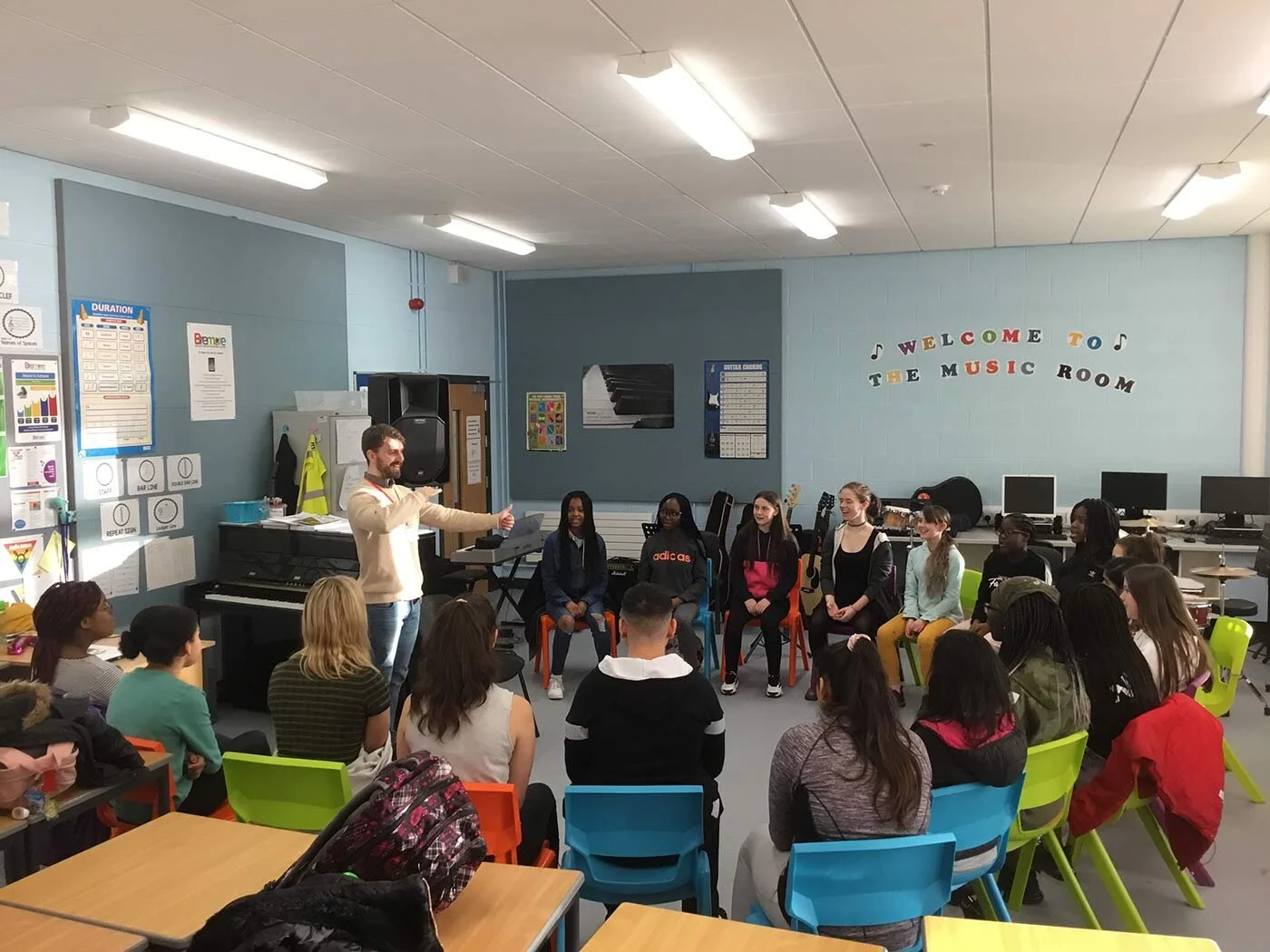Musician-in-Residence
The IIMS Schools Musician-in-Residence programme aims to supplement the national curriculum, with its focus on Listening & Responding, Performing and Composing.
Our team works with your school to create a bespoke programme of musical activities in order to achieve national targets while complementing and promoting the culture of each school. In each of our school classes and workshop as part of the schools residency, we facilitate this in various ways.
Listening & Responding: Each session will allow students to explore sounds and respond using both their voice (singing), their body (percussion) and the instrument (violin/ukulele/guitar).
Performing: As part of warm-ups and melody instruction, all students will be encouraged to sing and follow basic music notation (early literacy). There will also be an event at which all students will perform live in front of an audience - this may be parents or their peers in other classes.
Composing: In putting melodies together, all students are encouraged to create new sounds and they will get the chance to make up their own melodies and songs with the instruments (improvising). There is also the possibility of recording compositions in the classroom.
As part of the Musician-in-Residence programme, students will be exposed to the following musical concepts:
A sense of pulse (steady beat)
A sense of duration (long/short, patterns, rhythm)
A sense of tempo (fast/slow)
A sense of pitch (high/low)
A sense of dynamics (loud/soft)
A sense of structure (same/different)
A sense of timbre (tone colour)
A sense of texture (one sound/several sounds)
A sense of style (Irish traditional vs. classical)
Devised to support the national curriculum, the aims of the IIMS Schools Musician-in-Residence programme are:
to enable the child to enjoy and understand music and to appreciate it critically
to develop the child’s openness to, awareness of and response to a wide range of musical genres, including Irish music
to develop the child’s capacity to express ideas, feelings and experiences through music as an individual and in collaboration with others
to enable the child to develop his/her musical potential and to experience the excitement and satisfaction of being actively engaged in musical creativity
to nurture the child’s self-esteem and self-confidence through participation in musical performance
to foster higher-order thinking and lifelong learning through the acquisition of musical knowledge, skills, concepts and values
to enhance the quality of the child’s life through aesthetic musical experience





